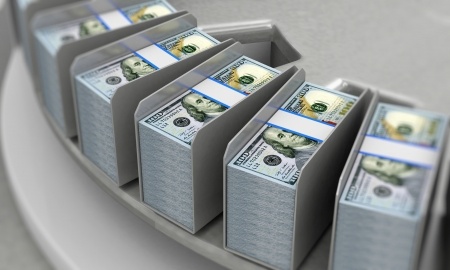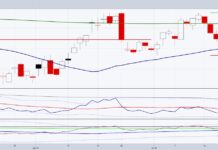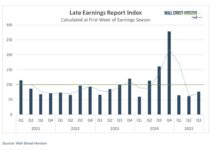#FedGibberish
Recently on my Twitter feed, @michaellebowitz, I introduced the hashtag #fedgibberish. The purpose was to tag Federal Reserve members’ comments that highlight desperate efforts to rationalize their inane monetary policy in the post-financial crisis era.
This past week there were two quotes by Fed members and one by the head of the European Central Bank (ECB) which were highly deserving of the tag. I present them below, with commentary, to help you understand the predicament the Federal Reserve and other central banks face.
Lael Brainard
On September 5, 2017 Federal Reserve Governor Lael Brainard stated the following in a speech at the Economic Club of New York:
“We should be cautious about tightening policy further until we are confident inflation is on track to achieve our target.” – “There is a high premium on guiding inflation back up to target so as to retain space to buffer adverse shocks with conventional policy.”
Let me rephrase: The Fed must be careful not to raise interest rates further until signs of inflation appear. When said inflation does pick up and it meets our target, we can then raise interest rates further. In doing so, we will then have the ability to lower interest rates when the economy hits a rough spot.
 Inflation has been benign since the 2008 financial crisis. Clearly, nine years of the lowest interest rates on record have not been inflationary for the prices of goods and services that make up most standard economic inflation gauges. In fact, it is quite possible that low interest rates have been deflationary. Further, it is difficult to find a better real world example of deflation than the incoherence of negative interest rates manufactured by the same central bankers who are begging for inflation. That said, there is a strong positive correlation between the amount of Fed stimulus and the price of financial assets. What Lael Brainard and her colleagues fail to understand is that excessive Federal Reserve policy has diverted capital away from productive investments that would generate the inflation and economic growth she and her colleagues so desperately seek to conjure. The bottom line is they do not understand the effect that eight years of excessive stimulus have had on the economy and are clearly unaware of what must be done to solve the global economic malaise.
Inflation has been benign since the 2008 financial crisis. Clearly, nine years of the lowest interest rates on record have not been inflationary for the prices of goods and services that make up most standard economic inflation gauges. In fact, it is quite possible that low interest rates have been deflationary. Further, it is difficult to find a better real world example of deflation than the incoherence of negative interest rates manufactured by the same central bankers who are begging for inflation. That said, there is a strong positive correlation between the amount of Fed stimulus and the price of financial assets. What Lael Brainard and her colleagues fail to understand is that excessive Federal Reserve policy has diverted capital away from productive investments that would generate the inflation and economic growth she and her colleagues so desperately seek to conjure. The bottom line is they do not understand the effect that eight years of excessive stimulus have had on the economy and are clearly unaware of what must be done to solve the global economic malaise.
Neel Kashkari
On September 6, 2017 Neel Kashkari from the Minneapolis Federal Reserve stated the following:
“Fed rate hikes may have done real harm to the economy.”
Kashkari senses economic weakness, which he believes is occurring as a result of the Federal Funds rate increasing from zero to 1.25% over the past 21 months. While that statement might be legitimately arguable, he is woefully negligent in helping his listeners understand why the economy is struggling despite the lowest rates in recorded history. An economy that cannot handle such a rise in the cost of money is symptomatic of a society burdened by too much debt. I posit that the economic problems the Fed aims to fix are the result of abnormally low interest rates and other stimulus of years past. These have not had the desired economic effects and have also curtailed future growth. After all, the use of debt pulls forward future consumption leaving less consumption in the future. Mr. Kashkari should consider that encouraging more debt is not the way to solve a debt burden. Either that, or he should let us in on his plan to forestall the arrival of the future from which consumption has been borrowed and payback is required.
Mario Draghi
On September 7, 2017 ECB President Mario Draghi stated:
“We do not see negative effects of QE”.
I am speechless. I simply ask Mr. Draghi – if there are no negative effects of QE then why are you contemplating tapering QE? In fact, why are the European people not rioting with pitchforks for a lot more QE?
There is no doubt in my mind Draghi’s statement flat out lie will become obvious over time. Until the media and the markets awaken from their central bank induced slumber, I leave you with the infamous words of prior ECB President Jean-Claude Junker, “when it becomes serious, you have to lie.”
As I put the finishing touches on this commentary, New York Federal Reserve President Bill Dudley pointed out that the longer-run effects of disasters like the recent hurricanes actually lifts economic activity. My reply to this absurd comment is simple: #fedgibberish
Twitter: @michaellebowitz
Any opinions expressed herein are solely those of the author, and do not in any way represent the views or opinions of any other person or entity.
ALSO READ: Are U.S. Consumers Exhausted?








